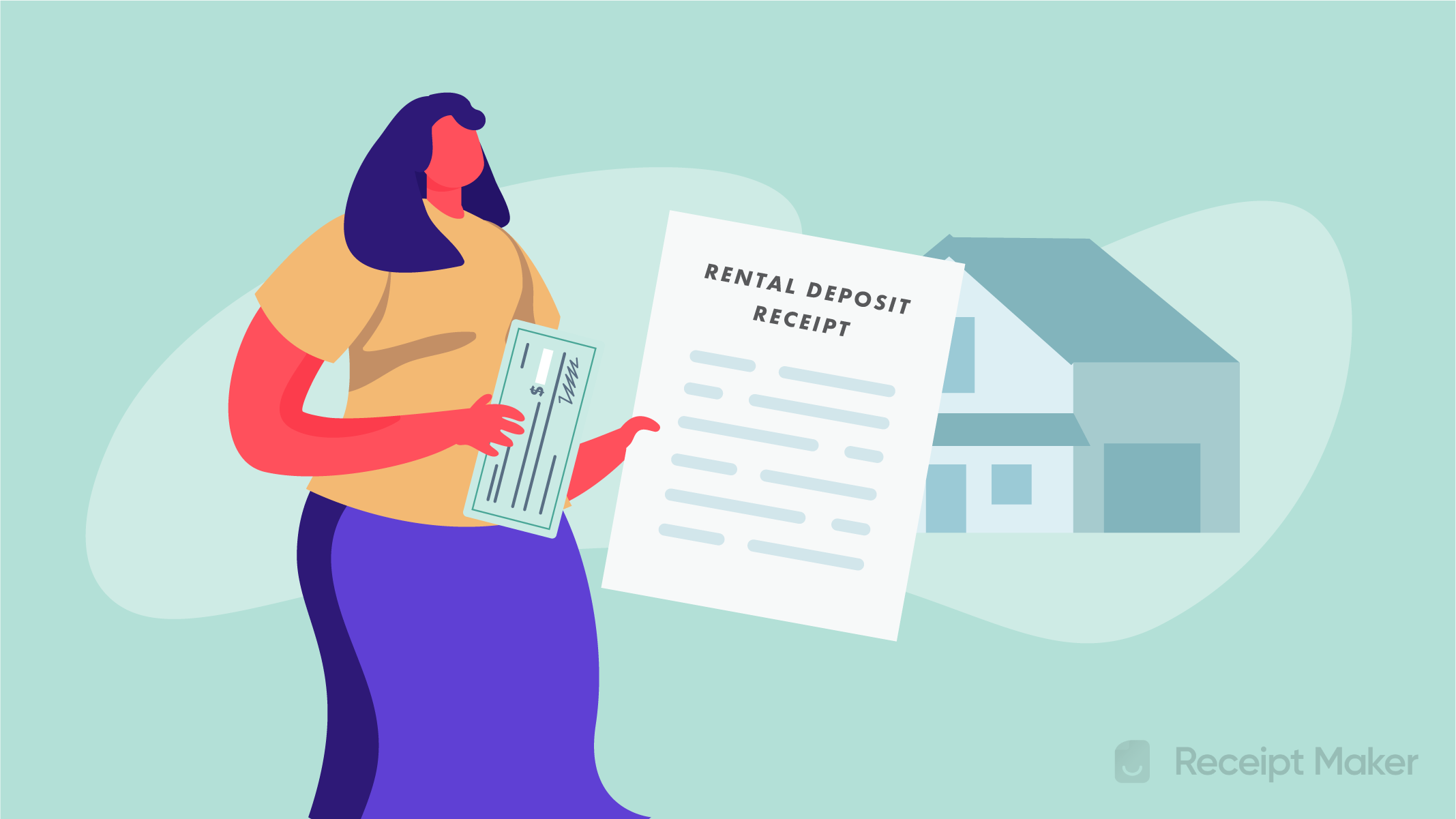A rental deposit receipt is a written record of a deposit paid by a tenant applying for a rental unit. It can be used as a pre-lease agreement when an applicant wants to put a hold on a rental unit but isn’t ready to sign an entire lease agreement yet. Landlords and tenants can also include it in a lease agreement for deposits held throughout the lease.
Common Types of Rental Deposits (6)
A rental deposit secures a rental unit for a specific period. The landlord or property owner establishes the time frame. During this time, the landlord will take the rental unit off the market so they don’t receive competing offers.
Landlords use rental deposits for many reasons, so a deposit receipt must reflect precisely what the landlord is collecting the deposit for. Here are some common types of rental deposits:
- Damage Deposit: Used for renting or leasing goods or services. To receive a refund of the deposit, the renter has to return the goods in the same or better condition than the renter leased them, and service providers must be given a safe and healthy working environment.
- Earnest Deposit: Paid when a tenant is interested in a particular property but isn’t able to move in right away. These are more commonly used in property sales, but landlords can utilize them when applicable. Earnest deposits are refundable on a case-by-case basis.
- Move-In Fee: Covers the cost of small changes made to a rental unit, including but not limited to new cabinets, countertops, furnishings, keys, key fob, paint, etc.). They are usually non-refundable and not regulated. Move-in fees are typically non-refundable.
- Pet Deposit: Functions like a security deposit but is held explicitly for damage caused by pets approved to live in the rental unit. It is usually refundable at the end of a lease if the pet didn’t cause any damage to the unit.
- Security Deposit: Covers any or all damages a tenant causes to a property for the duration of their lease. It applies to the building structure and any appliances or furnishings provided by the landlord. Landlords can also use it to cover the rent if a tenant broke or left a lease with unpaid rent. A security deposit is refundable if the tenant vacates the unit in the same or better condition it was when they moved in. Many states have limits on the amount a landlord can charge for a security deposit.
- Utility Deposit: Held as a backup fund if a tenant can’t afford a utility bill and the landlord has to cover it to avoid the utility shutting off. It is usually returned in full at the end of a lease if the tenant consistently pays their utility bills for the duration of the lease.
Rent Receipt Requirements (By State)
Only seven (7) states require rent receipts:
| State | Rule | Statute |
| Florida | Landlords are required to give tenants rent deposit receipts within thirty (30) days of receiving payment. | § 83.49(2) |
| Maryland | Landlords are required to provide receipts for security deposits. | § 8–203.1 |
| Massachusetts | Landlords are required to provide receipts upon payment to tenants who pay the last month’s rent when they move in. | § 15B(2)(a) |
| Nevada | Landlords are required to provide rent receipts whenever a tenant requests one. A tenant can withhold future rent payments if their landlord withholds a receipt. | NRS 118A.250 |
| New York | When landlords hold security deposits in banking institutions, they are required to provide receipts to tenants explaining the full deposit amount, account information where it is being held, and whether or not it will accrue interest. | GOB § 7-103 |
| Oregon | Landlords are required to provide receipts for security deposits. | ORS 90.300(2) |
| Washington | Landlords are required to provide a security deposit receipt that explains where the deposit is being held. This can either be a trust account at a state-recognized financial institution or a state-licensed escrow agent. | RCW 59.18.270 |

